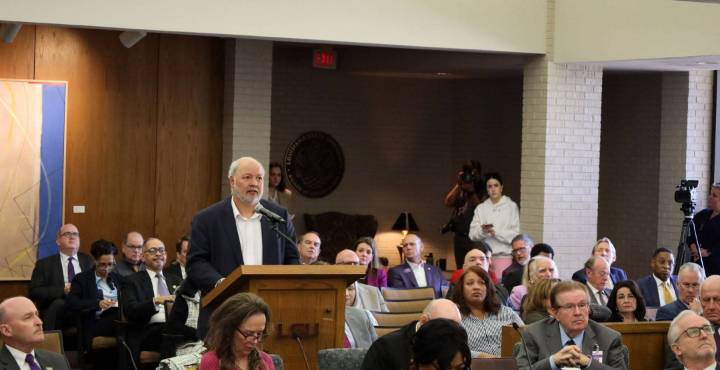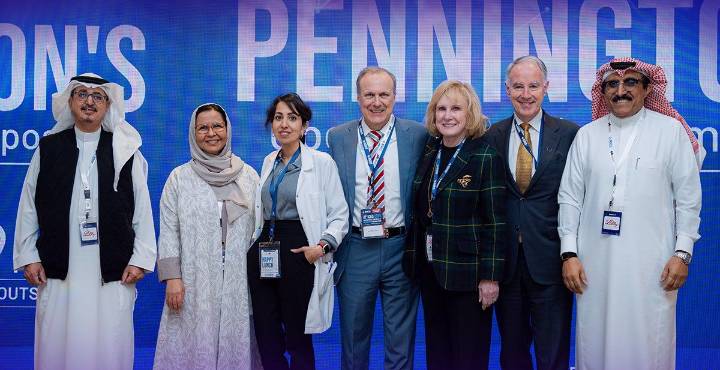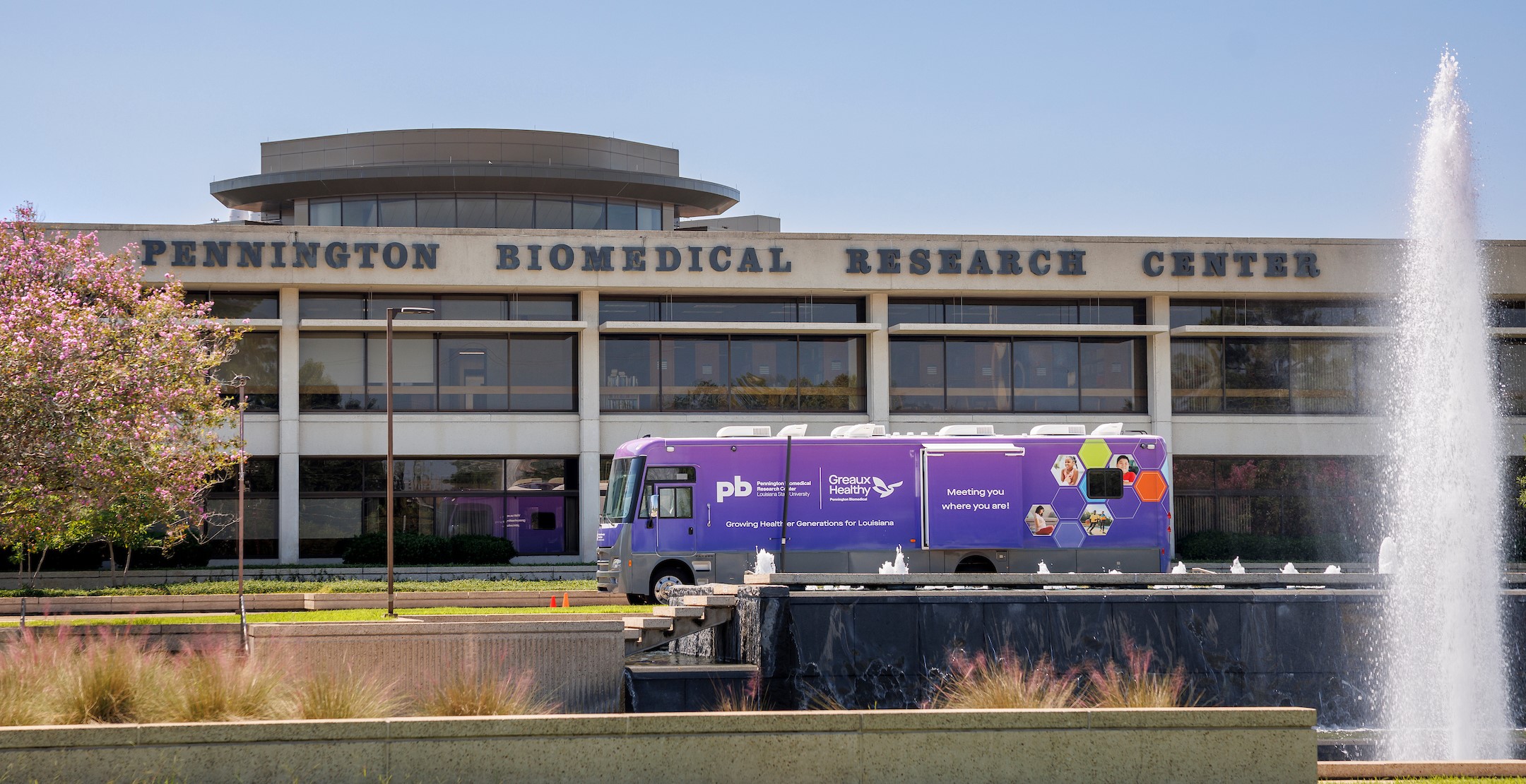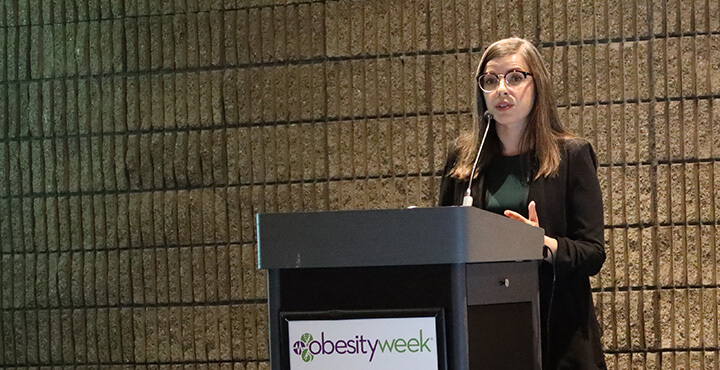2025 News Feed

2025 was a Year of Success for Pennington Biomedical, filled with Scientific Discoveries, Impactful New Collaborations and Strategic New Hires
Since the early days of January through December, the research scientists, faculty, staff and leadership of Pennington Biomedical Research Center helped make this year one of the most impactful in the Center’s near 40-year history. From its 222-acre campus in Baton Rouge, Pennington Biomedical is working on cutting-edge research to fight chronic disease, along with sharing its insights and influence on a global stage and fostering new collaborations to advance both the Center and the field of metabolic health.
Learn More
Pennington Biomedical Celebrates a Year of Small Shifts
As 2025 draws to a close, LSU’s Pennington Biomedical Research Center is proud to look back on a full year of its Small Shifts campaign – an initiative designed to show that small, manageable changes in daily routines can lead to major improvements in health, well-being and overall quality of life.
Learn More
LSU Board of Supervisors Provides Continued Authorization of the Institute of Dementia Research & Prevention
On Dec. 11, Pennington Biomedical's Dr. Jeff Keller, Director of the Institute for Dementia Research & Prevention (IRDP), presented a report on the accomplishments of the Institute over the past several years to the LSU Board of Supervisors.
Learn More
Pennington Biomedical Makes History with First-Ever International Symposium in Riyadh
Pennington Biomedical Research Center marked a major milestone this past week with the successful launch of its first international scientific symposium: the Pennington Obesity and Metabolic Disease Symposium, held December 6, in Riyadh, Saudi Arabia. The event concluded an extraordinary week of high-level partnership-building across the Gulf region, further solidifying Pennington Biomedical as a premier U.S. collaborator in support of the Kingdom of Saudi Arabia’s Vision 2030 health transformation goals.
Learn More
Do You Have “The Answer?” Find Out at Pennington Biomedical Research Foundation’s Premier Gala
“The Answer,” the annual premier gala for the Pennington Biomedical Research Foundation, will be held at the L’Auberge Casino and Hotel Event Center on Friday, March 27, 2026, with members of the Greater Baton Rouge community and beyond invited for a night of trivia, entertainment, a live and silent auction and more. For more than 10 years, the Pennington Biomedical Research Foundation has held the annual gala to support innovative, life-changing discoveries at the world-renowned Pennington Biomedical Research Center.
Learn More
"Louisiana: The State We're In" on Pennington Biomedical's Greaux Healthy Initiative
Louisiana now ranks fourth in the nation for adult obesity, according to new CDC data — a position the state consistently holds just behind West Virginia, Mississippi, and Arkansas. A doctor at Pennington Biomedical in Baton Rouge explains the factors driving Louisiana’s high rates, as the center rolls out new initiatives to fight obesity. That includes Greaux Healthy, a statewide effort aimed at helping families build healthier habits. LPB’s Christina Jensen reports. Louisiana: The State We're In (SWI) SWI is Louisiana's only statewide news magazine. The program airs Fridays at 7 p.m. and Sundays at 4:30 p.m. on the six-station LPB network that includes stations in Alexandria, Baton Rouge, Lafayette, Lake Charles, Monroe, and Shreveport. This award-winning show combines in-depth coverage about the important issues in the state along with expert analysis.
Learn More
Pennington Biomedical Appoints Dr. Corby Martin as the Associate Executive Director for Scientific Education
LSU’s Pennington Biomedical Research Center announced that Dr. Corby Martin has been appointed as the Associate Executive Director for Scientific Education, effective November 1, 2025.
Learn More
Severity of Obesity Closely Associated with Likelihood of Disease Burden in US National Study
Obesity severity is incrementally associated with a broad range of cardiometabolic and renal disease burden, as discovered by researchers at Pennington Biomedical Research Center. Recently published in Obesity, the paper “Association of Obesity Severity with Cardiometabolic and Renal Disease Burden in the United States,” explored the relationship through a cross-sectional study of data from the U.S. Behavioral Risk Factor Surveillance System survey.
Learn More
Pennington Biomedical’s Dr. Leanne Redman Recruited to Lead the Charles Perkins Centre at the University of Sydney
Following an extensive worldwide search, Dr. Leanne Redman has been appointed Academic Director of the Charles Perkins Centre, the University of Sydney’s first and largest multidisciplinary research initiative. A Professor of Clinical Science, Dr. Redman currently holds a number of positions at LSU’s Pennington Biomedical Research Center including the LPFA Endowed Chair in Nutrition and Associate Executive Director for Scientific Education. Over the past twenty years, she has pioneered groundbreaking research on women’s health issues, including the study of obesity in pregnancy, the optimisation of maternal nutrition and childhood obesity prevention.
Learn More
Pennington Biomedical Encourages “Small Shifts” for a Healthier, More Energized Holiday Season
As the holiday season approaches, Pennington Biomedical Research Center is sharing tips and advice to help families enjoy their celebrations while feeling their best. Building on the Center’s popular “Small Shifts” campaign, the message this year is simple: even modest changes to how we approach food, movement, and mindfulness can make a big difference in our energy, health, and enjoyment.
Learn More

